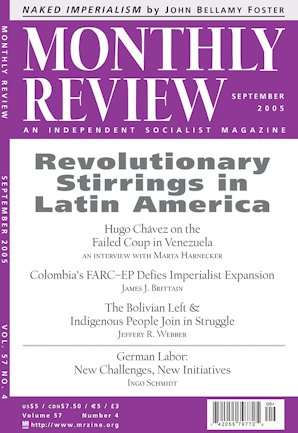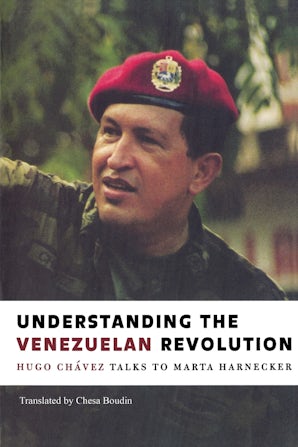Also in this issue
Books by Hugo Chávez
Understanding the Venezuelan Revolution
by Hugo Chavez and Marta Harnecker
Article by Hugo Chávez
- A New Revolutionary Subject
- 'A New Revolutionary Subject': Marta Harnecker interviewed by Tassos Tsakiroglou
- Social Movements and Progressive Governments: Building a New Relationship in Latin America
- I. Latin America
- II. Twenty-First Century Socialism
- Conclusion
- Latin America & Twenty-First Century Socialism: Inventing to Avoid Mistakes
- Report from Venezuela: Aluminum Workers Choose Their Managers and Increase Production
- After the Referendum: Venezuela Faces New Challenges


